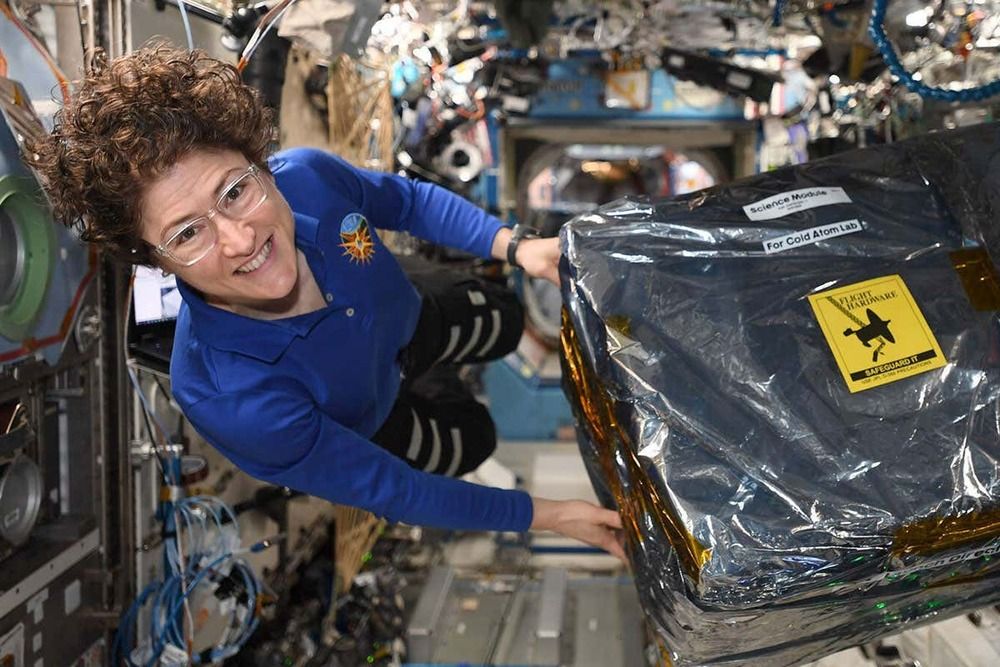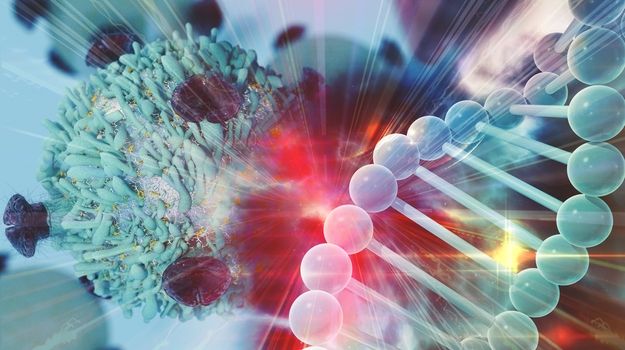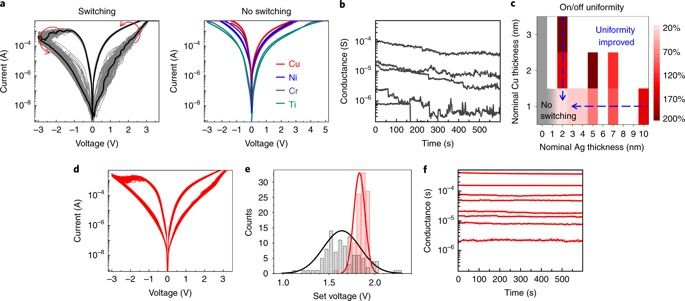An instrument on board the International Space Station contains one of the coldest places in the universe, and researchers have used it to create a cloud of frozen atoms.


The aim of this study is to evaluate if the sweat produced by COVID-19 persons (SARS-CoV-2 PCR positive) has a different odour for trained detection dogs than the sweat produced by non COVID-19 persons. The study was conducted on 3 sites, following the same protocol procedures, and involved a total of 18 dogs. A total of 198 armpits sweat samples were obtained from different hospitals. For each involved dog, the acquisition of the specific odour of COVID-19 sweat samples required from one to four hours, with an amount of positive samples sniffing ranging from four to ten. For this proof of concept, we kept 8 dogs of the initial group (explosive detection dogs and colon cancer detection dogs), who performed a total of 368 trials, and will include the other dogs in our future studies as their adaptation to samples scenting takes more time.
The percentages of success of the dogs to find the positive sample in a line containing several other negative samples or mocks (2 to 6) were 100p100 for 4 dogs, and respectively 83p100, 84p100, 90p100 and 94p100 for the others, all significantly different from the percentage of success that would be obtained by chance alone.
We conclude that there is a very high evidence that the armpits sweat odour of COVID-19+ persons is different, and that dogs can detect a person infected by the SARS-CoV-2 virus.
Therefore, in 2020, we launched an initiative to focus NTZ’s efforts on the rejuvenation field, and to establish a worldwide network of translators of the field in order to turn NTZ into a tool for the whole field in the area of translation. This means that if a person or an entity in the rejuvenation field needs a translation which requires a translator familiar with the topic, with sufficient technical knowledge and reliability in any language pair, they only need to contact NTZ. Translators specialized in the science of rejuvenation know the technical terms, the main theories of aging, the most influential scientists, the key organizations, the most promising companies and the most active investors in the field. They are also aware of the importance of the rejuvenation field and are part of the worldwide effort to end an immense source of suffering in the world: aging and death caused by the inability to undo it.


One day, cell and gene therapies will be as common as small molecules and antibody-based therapies are today, according to panelists at BIO’s June 8 virtual session, “The Next Generation of Medicine: Cell Therapies, Gene Therapies and Beyond.”
Because cell and gene therapies have the potential to address complex biological issues such as dysregulation, translocation and mutations, they can use that power to change what the body is doing.
“So, while small molecules and antibody therapies will still be around 30 years from now, they will be less important. Cell and gene therapies will dominate,” James Sabry, global head of pharma partnering at Roche, said.
Speed as important as size in predicting potentially damaging impacts of coronal mass ejections.
Space weather forecasters need to predict the speed of solar eruptions, as much as their size, to protect satellites and the health of astronauts, scientists have found.
Scientists at the University of Reading found that by calculating the speed of coronal mass ejections (CMEs) when they hit Earth, forecasters could provide more useful early warnings. This would help operators of critical infrastructure such as satellites know if they need to take evasive action or switch off systems to protect them, and warn astronauts when they need to shelter inside shielded parts of the International Space Station.

More time was allotted for the United Launch Alliance team to make repairs to ground system equipment. Liftoff atop an Atlas V rocket is set for 6:15 a.m. PT (9:15 a.m. ET, 1315 UTC). https://go.nasa.gov/2JvRbLq
Our newest water-seeking rover just booked a ride to the Moon’s South Pole.
Pittsburgh-based Astrobotic has been selected to deliver VIPER to the Moon in 2023 in preparation for future #Artemis missions to bring humanity to the lunar surface: https://go.nasa.gov/2YsxZFw

A memristor1 has been proposed as an artificial synapse for emerging neuromorphic computing applications2,3. To train a neural network in memristor arrays, changes in weight values in the form of device conductance should be distinct and uniform3. An electrochemical metallization (ECM) memory4,5, typically based on silicon (Si), has demonstrated a good analogue switching capability6,7 owing to the high mobility of metal ions in the Si switching medium8. However, the large stochasticity of the ion movement results in switching variability. Here we demonstrate a Si memristor with alloyed conduction channels that shows a stable and controllable device operation, which enables the large-scale implementation of crossbar arrays. The conduction channel is formed by conventional silver (Ag) as a primary mobile metal alloyed with silicidable copper (Cu) that stabilizes switching. In an optimal alloying ratio, Cu effectively regulates the Ag movement, which contributes to a substantial improvement in the spatial/temporal switching uniformity, a stable data retention over a large conductance range and a substantially enhanced programmed symmetry in analogue conductance states. This alloyed memristor allows the fabrication of large-scale crossbar arrays that feature a high device yield and accurate analogue programming capability. Thus, our discovery of an alloyed memristor is a key step paving the way beyond von Neumann computing.

Circa 2019 o,.0.
How did the universe evolve from a point of singularity, known as the Big Bang, into a massive structure whose boundaries seem limitless? New clues and insight into the evolution of the universe have recently been provided by an international team of physicists, who performed the most detailed large-scale simulation of the universe to date.
The researchers made their own universe in a box — a cube of space spanning more than 230 million light-years across. Previous cosmological simulations were either very detailed but spanned a small volume or less detailed across large volumes. The new simulation, known as TNG50, managed to combine the best of two worlds, producing a large-scale replica of the cosmos while, at the same time, allowing for unprecedented computational resolution.
The level of detail is incredible, matching what was once only possible to do in simulations of individual galaxies. TNG50, in fact, tracks 20 billion particles representing dark matter, stars, cosmic gas, magnetic fields, and supermassive black holes.